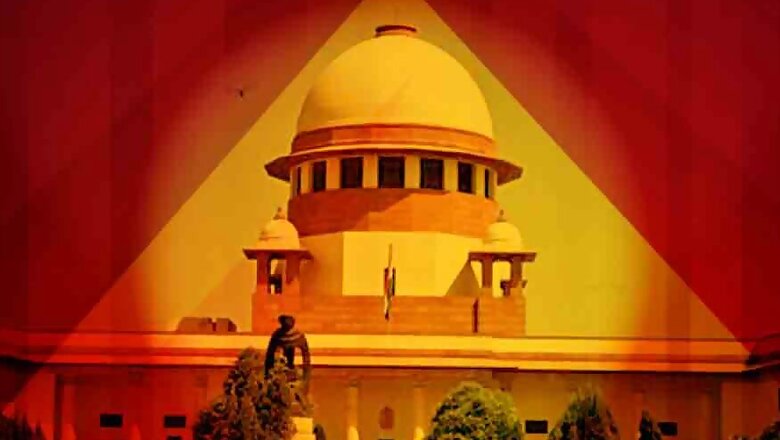
views
New Delhi: The Supreme Court on Wednesday granted its nod to a central scheme that seeks to safeguard witnesses and their family members from any threats against their lives and reputation and asked the government and all states to implement it in letter and spirit.
The top court said Witness Protection Scheme, 2018, shall be the 'law' under Article 141 and 142 of the Constitution, till the enactment of suitable parliamentary or state legislations on the subject.
The important features of the Witness Protection Scheme, 2018 include identifying categories of threat perceptions, preparation of a 'Threat Analysis Report' by the head of the police, protective measures like ensuring that the witness and accused do not come face to face during probe, protection of identity, change of identity, relocation of witness, witnesses to be apprised of the scheme, confidentiality and preservation of records, recovery of expenses etc.
A bench of justices AK Sikri and SA Abdul Nazeer directed that in all the districts courts of the country, vulnerable witness deposition complexes shall be set up by the all the states and union territories by the end of 2019.
It said that the central government should also support this endeavour of the states/union territories by helping them financially and otherwise.
"This court has given its imprimatur to the scheme prepared by respondent No.1 (Centre) which is approved hereby. It comes into effect forthwith. The Union of India as well as States and Union Territories shall enforce the Witness Protection Scheme, 2018 in letter and spirit," the bench said.
It said that there is a paramount need to have witness protection regime, in a statutory form, which all the stakeholders and all the players in the criminal justice system concede but at the same time there is no such law.
The court noted that one of the main reasons for witnesses to turn hostile is that they are not accorded appropriate protection by the State. "It is a harsh reality, particularly, in those cases where the accused persons/ criminals are tried for heinous offences, or where the accused persons are influential persons or in a dominating position that they make attempts to terrorize or intimidate the witnesses because of which these witnesses either avoid coming to courts or refrain from deposing truthfully," the court said.
The court said one of the main reasons behind establishing the vulnerable witness deposition complexes was that a large percentage of acquittals in criminal cases is due to witnesses turning hostile and giving false testimonies, mostly due to lack of protection for them and their families, especially in case of women and children.
The bench expressed concerned over the conditions of witnesses in Indian legal system and termed it as 'pathetic' saying there are many threats faced by the witnesses at various stages of an investigation and then during the trial of a case.
"Apart from facing life threatening intimidation to himself and to his relatives, he may have to face the trauma of attending the court regularly. Because of the lack of witness protection programme in India and the treatment that is meted out to them, there is a tendency of reluctance in coming forward and making statement during the investigation and/or testify in courts," the bench said.
It said that the Witness Protection Scheme, 2018 provides for usage of specially designed court room having special arrangements like live links, one way mirrors, and screens apart from separate passages for witnesses and accused with the option to modify the image of the face of the witness and to modify the audio feed of the witness's voice, so that he/she is not identified.
The scheme was prepared by the central government on the inputs received from 18 states/union territories, five state legal services authorities and open sources including civil society, three high courts as well as from police personnel. The scheme was finalised in consultation with National Legal Services Authority (NALSA).
In its affidavit, the apex court emphasised that the witnesses need to be given the confidence to come forward to assist law enforcement and judicial authorities with full assurance of safety and the present Scheme is aimed to identify the series of measures that may be adopted to safeguard witnesses and their family members from intimidate and threats against their lives, reputation and property.
The Centre said one of the aims and objectives of the scheme is to ensure that the investigation, prosecution and trial of criminal offences is not prejudiced because witnesses are intimidated or frightened to give evidence without protection from violent or other criminal recrimination.
The issue of witness protection scheme had cropped up earlier when the top court was hearing a public interest litigation (PIL) filed by a person named Mahendra Chawla through advocate Utsav Bains seeking protection for witnesses in rape cases involving self-styled preacher Asaram Bapu. Section 195 A of the Indian Penal Code deals with witness protection. Countries such as USA, United Kingdom, China, Italy, Canada, Hong Kong and Ireland have witness protection scheme.




















Comments
0 comment